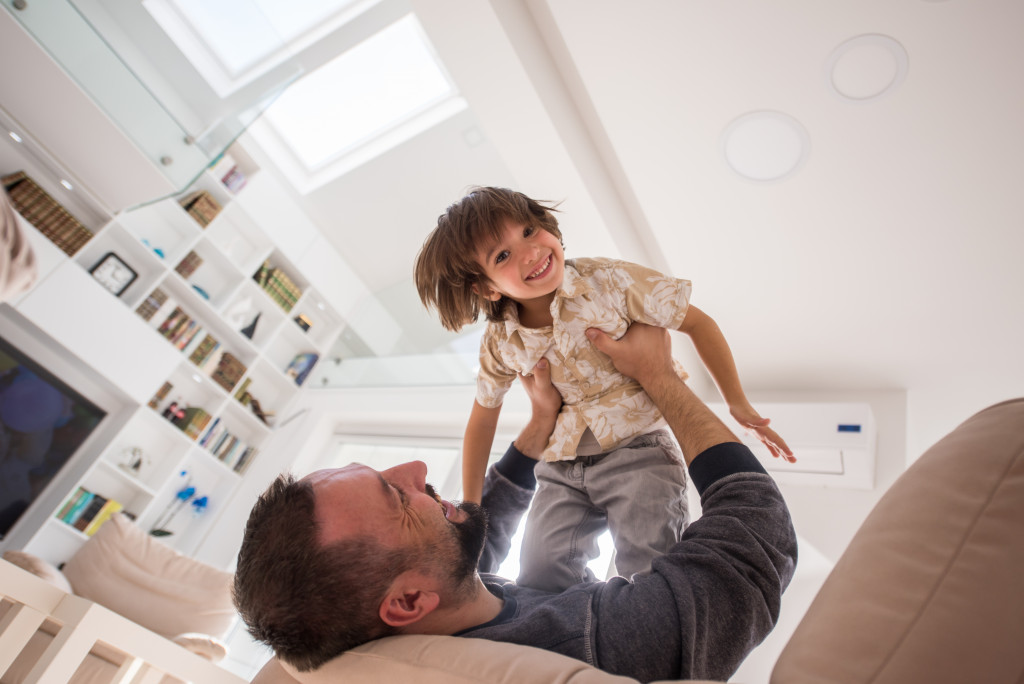When you ask parents what they aspire for their children, they will often say that all they want is for their kids to be happy. And it’s a fact that one can never deny. As a parent, your child’s happiness comes first more than anything else.
Most parents are more concerned about the well-being of their kids than their own. And if you’re one of these parents who wish to raise happy kids, then you’ve come to the right place. Here, we will talk about raising happy kids and why it’s essential to teach them happiness.
The Importance of Happiness for Kids
A happy childhood plays a vital role in your child’s upbringing. It also has a significant effect on how they view life as a child and as an adult. Research says that happy children are also more likely to succeed in life and accomplish their goals than those who have had a sad childhood.
Happiness is a great advantage in the real world. In general, happy people are more successful, perform better, and are more likely to get great jobs and more opportunities in life. They also tend to have happier married lives filled with love and contentment.
That being said, you must raise a happy child to give them a better chance at life. Here’s what you need to do.
Be a Role Model
Children are often happy. But how you show them happiness reflects on how happy and successful they will be. If you’re always sad and not showing any signs of positivity, your children will see and eventually copy your emotions.
Laughter and a smile are both contagious. Surround yourself with family and friends who keep you happy, those who like to joke around and prefer to keep things “chill.” Remember that when you’re happy, your kids are happy.
Teach How to Build Relationships
Relationships are vital too. Children need to learn how to make friends by being compassionate and kind to others. You might think that they are too young to learn how to interact with people, but their childhood relationships are the foundation that’ll help them build stronger relationships when they become adults.

For example, when you take your child to Peppercorn Hill playground, allow them to make friends with kids their age. Observe how they interact with kids they just met, how they talk and start to become friends. If your child can easily make one or two friends, rest assured that they can build healthy relationships growing up.
Building relationships also helps your child to enhance their other skills. It also makes them better people. And in the long run, strong relationships make them happy.
Don’t Expect Perfection
One of the common mistakes of parents is expecting their kids not to commit mistakes. Researches are very consistent in stating that overemphasizing achievement rather than acknowledging the effort will produce depressed and anxious kids.
When kids are praised for their hard work and efforts, they are more encouraged to work better and achieve more. But as they do the process, they are happier because they are doing it to make themselves feel better and not just to please their parents.
Teach Optimism
The key to raising happy children is teaching them how to have a positive outlook in life. Children educated to think and interpret difficulties in life with optimism are less vulnerable to depression when they reach their teenage years.
Optimism is related to happiness that the two cannot exist without the other one. Optimistic kids tend to be more:
- Active in school and athletics
- Healthier and have a longer life
- Satisfied with their married lives
Teach Emotional Intelligence
Emotional intelligence is a skill that kids learn, and it’s not genetic. A well-taught child about emotional intelligence can naturally assess their emotions and learn how to deal with them. What parents need to do is empathize and validate their child’s emotions.
Teach your child not to hide their emotions and let their anger and frustrations out. Listen to their sentiments and allow them to explain why they feel that way. From there, work with your children to come up with a solution, so they can calmly compose themselves and share what they’re going through.
When kids know that their feelings are validated, it’s easier for them to speak out. And when they can vent out their frustrations, anger, and other negative emotions will not have a chance to build up inside them.
Parenting is challenging and fun at the same time. And as a parent, you wish to create an environment that’ll enhance their skills while keeping them happy. It might get a bit tricky at first, but you’ll get the hang of it, just like other parents out there.
